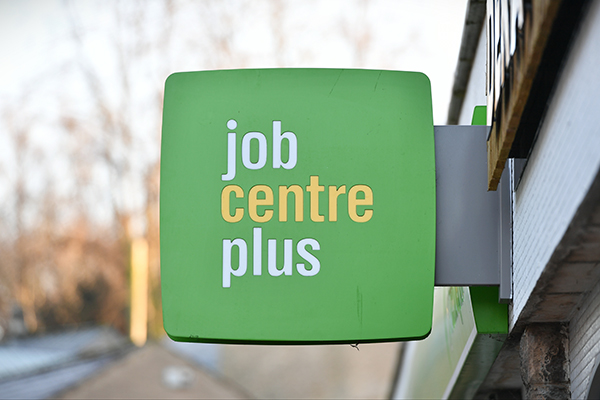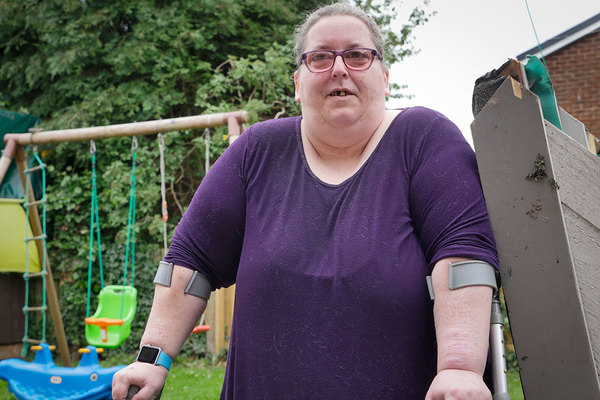You are viewing 1 of your 1 free articles
 Pat Ritchie
Pat RitchieCouncils must prepare to help Universal Credit claimants
Universal Credit may have been tweaked but people are still being put at risk of eviction and homelessness, says Pat Ritchie
 Pat Ritchie
Pat RitchieIn this article, I’ll attempt to cover Universal Credit and housing without getting into the politics.
“Quite a challenge,” I hear you cry. And you’re right – welfare reforms and the roll-out of Universal Credit are among the most emotive and contentious issues in public policy right now. It’s vital that councils and partners understand both the effects of welfare reforms and more importantly what we can do together to reduce adverse impacts on residents.
“Universal Credit is having profound impacts on many of our residents.”
Newcastle was the first of the Core Cities to roll out Universal Credit, starting in May 2016. Our own reports show that Universal Credit is having profound impacts on many of our residents, particularly those with existing problems in their lives and those with lower levels of resilience and family support.
In Newcastle we believe passionately in the value of a secure home as the foundation for a stable life. This sits at the core of the council’s partnership with Your Homes Newcastle (YHN), our ALMO.
Universal Credit presents big challenges for our residents and those involved in providing secure housing. These include:
- The single monthly payment and rent arrears: The single payment includes an element of housing costs, meaning residents have to budget on a monthly basis and pay their rent directly to their landlord. Currently, we know of more than 3,000 YHN tenants who are in receipt of Universal Credit and some 2,600 were in arrears (86%), and while tenants had existing arrears, £1.2m of this is attributed to Universal Credit.
- Increasing demands on councils: In the first six months of this financial year, Newcastle made 277 awards from our Crisis Support Scheme to support residents due to the Universal Credit waiting period as well as incorrect awards.
- Private landlords: In Newcastle there is some evidence to suggest private landlords are becoming less inclined to accept Universal Credit claimants because of the cash flow issues.
- Entrenching inequalities: The combined effects of Universal Credit and the reduction in Local Housing Allowance increases the tendency for the poorest to be concentrated in the lowest-demand housing areas.
We know government has recently come under pressure to mitigate financial hardship caused by the time lag between claim and payment. And I welcome any moves to address this.
Yet it is clear government believes the policy is working overall. So, despite tweaks and perhaps some mitigation of the ‘time lag’, the roll-out of Universal Credit looks set to continue.
But, despite our strong partnership working, we need to be honest about the scale of the challenges our residents face. The combination of welfare reforms and the government’s programme of austerity means we’ve had to work even harder and smarter with partners to adopt a more co-ordinated city-wide approach. And we’ve had to do this while taking out £291m from the council’s budget.
So we need to recognise that, without change, the level of support and advice currently on offer is not sustainable in the transition to a reduced welfare state. My team will continue to work with the Department for Work and Pensions locally to inform improvements in practice and I will continue to raise these important issues nationally.
“Ultimately, responsibility for resolving the challenges from Universal Credit rest firmly with government.”
While I’m conscious of my promise not to stray into the politics of Universal Credit, I also feel duty-bound to leave you with a local example of the human costs associated with the transition.
Amy (not her real name), a single woman aged under 25, lost her job and after two weeks of unsuccessfully looking for work, she claimed Universal Credit. She had no income for five weeks, had rent arrears and a notice seeking possession, leaving her on the brink of homelessness. When her first Universal Credit payment came through, after deductions for her debts, a benefit advance and a court fine, she was left with just £12.73 a month to live on. The challenge for all of us in local government is that Amy’s story is not unique.
Ultimately, responsibility for resolving the challenges from Universal Credit rest firmly with government. Our role locally is to protect residents most vulnerable to the transition, while making the case nationally for appropriate support and mitigation. I am passionate that we fulfil that role for all the people just like Amy.
Pat Ritchie, chief executive, Newcastle City Council










